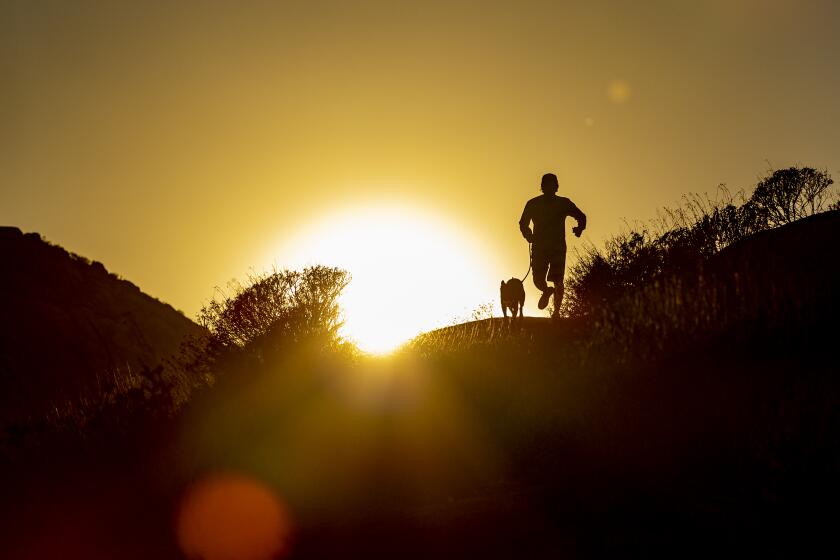Firefighting Base in Eye of a Storm
- Share via
SACRAMENTO — Few things stoke worries in the California backcountry like wildfire. So when the state Department of Forestry and Fire Protection proposed closing its air tanker base in Ukiah, amid the North Coast forests, residents voiced fear and outrage.
The planes and their loads of fire retardant will be that much farther away, meaning that precious minutes could be lost in the battle to save not just trees, but towns, residents said. Small fires, they argued, could turn into infernos. The savings, $391,000 a year, would be dwarfed by the cost of a single catastrophic blaze, the locals said.
State fire officials, hunting for spending cuts as California grapples with a budget gap soaring toward $35 billion, contended that the region now served by Ukiah’s two planes would remain well protected. A state Senate budget panel was scheduled to debate the cut today.
Under the plan, aircraft stationed in Ukiah and in Porterville, which is in the San Joaquin Valley south of Fresno, would be shifted to other bases. Porterville would retain an operating U.S. Forest Service fire station that would continue to serve as an aerial staging area. As a result, officials there haven’t complained.
Others, however, have.
“Whether a plane gets there in 20 minutes or in 40 minutes can be the difference between controlling a fire, or watching it become a major holocaust,” said Michael Sweeney, who launched the Coalition to Save Ukiah Air Attack.
In Ukiah, the issue tops the civic agenda. The state has proposed shifting the two planes -- among 23 old submarine chasers originally built for the military by Grumman -- to bases in Chico to the east and Santa Rosa to the south. Opponents contend that the move would put most of Mendocino County and parts of Lake County beyond the standard 20-minute response time.
State fire officials originally wanted to close the Ukiah base this spring, but lawmakers rejected that proposal. Undaunted, the Forestry Department has continued to push the Ukiah closing in next year’s budget, which takes effect July 1.
Louis Blumberg, a department spokesman, said fire officials had deemed the Ukiah air base expendable largely because of improvements in the planes.
In recent years, upgrades to the Grumman aerial tankers pumped up top speed from 195 mph for older models to 258 mph for models with new turbine engines.
The planes, he said, now cover 85 miles in the same time it took to go 60.
“We’ll still meet our operational goal,” Blumberg said. “I understand why the local community isn’t pleased. Our druthers would be to not make any cuts. But this is something that we can do and not compromise public safety.”
Opponents cited a fire last September as proof that he is wrong. The blaze struck near Laytonville on a day that the two Ukiah air tankers were operating out of another base. Their arrival was delayed 20 minutes, and the fire spread further than it might have otherwise, they said, and cost $1.6 million to put out.
Sweeney said such costs could be magnified with fire after fire. Not only would the planes take longer to mount a first strike from a more remote base, but precious minutes would be added to each turnaround to refuel and refill with retardant.
Opponents called the shift a shell game. Half the savings from consolidating support operations at other bases would be offset by about $172,000 in additional fuel and flight time to reach fires around Ukiah, Sweeney said. “It’s a phony savings.”
Robert Bruce lives in fear of the future because of the losses of the past. He witnessed the wrath of a firestorm firsthand, losing his home in the devastating 1991 Oakland Hills blaze.
Pushing the tankers to distant bases, Bruce said, “gives a fire just that much more of a head start.”
More to Read
Sign up for Essential California
The most important California stories and recommendations in your inbox every morning.
You may occasionally receive promotional content from the Los Angeles Times.













